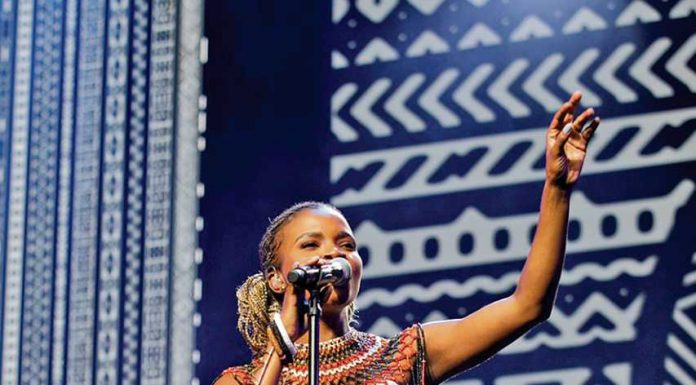Johannesburg – While Kabza De Small and DJ Maphorisa are hailed as the kings of amapiano, it is Amanda “Ami” Faku who of late has brought that added spice to this genre.
Her angelic voice has a commanding presence and has captured audiences across age and race groups – who sing melodically along to her tunes.
Barely a month old, Asibe Happy is blowing up and has become a national anthem, thanks to the heart-warming vocals of Faku.
Having grown in a township called Izinyoka in Eastern Cape, she sang in a church choir, and Faku said it was there that she was told that she was vocally gifted.
“That’s when I realised I might be more talented than I knew,” she quipped.
But she wasn’t 100% convinced and looked forward to being an accountant. However, she came to her senses and went back to her God-given gift – music.
“I travelled between studios in my area and used every opportunity that I could to record,” said Faku, who added that she writes her own songs.
She entered Idols SA but was rejected twice. She then entered a music competition, The Voice in 2017, where she gained some recognition.
Though she didn’t win, she was signed by Vth Season Record Label, where she released her first single Ndikhethe Wena.
But Faku reckons it was when she featured on Into Ingawe with Sun-EL Musician, two years ago, that people started paying proper attention to her.
“It is the song that changed my life and put me in front of the people. It is still definitely my biggest song to date, but Abalele is well on its way,” said the 28-year-old.
Her efforts resulted in her winning Female Artist of the Year at the 26th South African Music Awards last year.
Other accolades include her album Imali receiving gold status, while her single with Prince Kaybee, Black Motion and Shimza, titled Uwrongo, made it onto Time Magazine’s 10 best songs. Faku, whose lyrics touch the soul, said most of her songs are about experiences that are true and personal.
“Whether or not they may be about me is a different story, but they are about real people and real situations.”
But why amapiano? “I loved listening to the genre as a fan and seeing the genre grow, I was interested in the evolution and new sounds that I ended up falling in love with it.
“Of course, Kabza De Small is an amazing artist and he was one of the first to help commercialise and popularise the sound, which is what triggered my interest,” she said.
But with fame comes responsibility, which she said she is prepared for.
“I am a very simple person. I prefer my personal space away from the limelight. When I’m not performing, I am probably just at home writing or with family and friends.
“With my entry into amapiano, the fame was relatively easy to cope with because I have always created music that resonates with audiences,” she said.
Already likened to legends like Lebo Mathosa, Brenda Fassie and the late Tsakani “TK” Mhinga, the modest Faku said she makes music for the love of it and is not after legendary status.
“I don’t like to put that kind of pressure on myself or think of such things.
“Life is unpredictable. I will continue to be myself and do as I have always done,” she concluded.
Click here to read more from Shwashwi
Follow @SundayWorldZA on Twitter and @sundayworldza on Instagram, or like our Facebook Page, Sunday World, by clicking here for the latest breaking news in South Africa. To Subscribe to Sunday World, click here.
Sunday World



